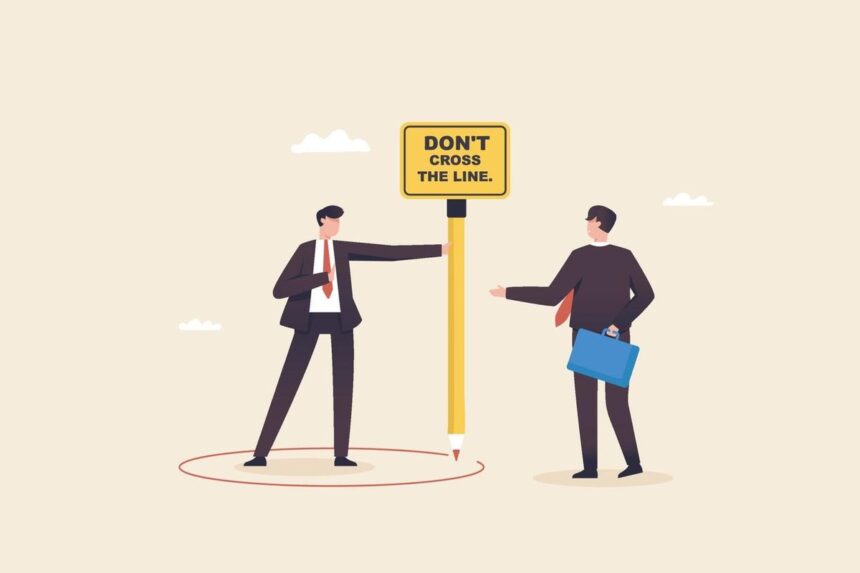Powerful Reasons Why Respecting Personal Space Improves Your Life
Respecting personal space is a fundamental aspect of human interaction, yet it is often overlooked in our fast-paced, crowded, and digitally connected world. Personal space refers to the physical and emotional boundaries individuals maintain to feel safe, secure, and comfortable. Understanding and honoring these boundaries is not only a matter of etiquette but also a crucial component of mental well-being, social harmony, and effective communication.
- History of Personal Space Awareness
- Facts About Respecting Personal Space
- Timeline of Personal Space Understanding
- Significance of Respecting Personal Space
- Daily Life Impacts
- Observance and Important Points
- Common FAQs About Personal Space
- Wishing and Social Significance
- Conclusion: Importance in Daily Life and Society
This guide explores the history, significance, daily life impact, and societal relevance of respecting personal space. It includes timelines, facts, FAQs, practical insights, and tips for mindful behavior, helping individuals navigate social interactions with confidence and empathy.
History of Personal Space Awareness
The concept of personal space has evolved alongside human society:
Ancient Civilizations: Early humans recognized physical boundaries for safety and comfort. Personal space was crucial for hunting, gathering, and social interactions.
Classical Greece and Rome: Philosophers and physicians discussed the importance of respecting others’ physical and social boundaries.
Middle Ages: Social hierarchies influenced personal space, with nobles and commoners maintaining distinct distances during interactions.
19th Century: Urbanization increased population density, highlighting the psychological and social importance of personal space in crowded cities.
20th Century: Psychologists such as Edward T. Hall introduced the concept of “proxemics,” studying how humans perceive and maintain personal space in social and professional contexts.
21st Century: Awareness of personal space is emphasized in workplaces, schools, public transportation, and digital interactions, reflecting its importance for mental health and social harmony.
Facts About Respecting Personal Space
Universal human need: Personal space is vital for comfort, security, and autonomy.
Cultural variations: Acceptable distances differ across cultures; for example, Northern Europeans prefer more personal space than many Latin American or Middle Eastern cultures.
Psychological impact: Violating personal space can trigger stress, anxiety, or discomfort.
Non-verbal communication: Body language, eye contact, and posture help signal and respect boundaries.
Digital extension: Even in virtual spaces, respecting personal boundaries and privacy is essential for healthy online interactions.
Timeline of Personal Space Understanding
Prehistoric Era: Physical distance maintained for survival and comfort in tribal communities.
Ancient Civilizations: Personal boundaries observed in rituals, meetings, and social hierarchies.
19th Century: Urbanization highlighted stress from crowding, leading to awareness of spatial needs.
1940s–1960s: Edward T. Hall formalized the study of proxemics, categorizing personal, social, and public distances.
Late 20th Century: Workplaces, schools, and public areas began incorporating personal space considerations.
21st Century: Personal space awareness is integrated into mental health practices, social etiquette, and global cultural understanding.
Significance of Respecting Personal Space
Respecting personal space has practical, psychological, and social significance:
Mental well-being: Ensures individuals feel safe, reducing stress and anxiety.
Social harmony: Promotes respectful interactions in crowded public spaces, workplaces, and homes.
Conflict prevention: Avoids misunderstandings, aggression, and discomfort caused by unwanted proximity.
Cultural sensitivity: Demonstrates awareness of and respect for cultural norms regarding space and physical interaction.
Effective communication: Provides comfort and psychological safety, improving conversation, collaboration, and trust.
Daily Life Impacts
Respecting personal space affects multiple aspects of everyday life:
Family life: Gives members autonomy and comfort, reducing conflicts and fostering emotional well-being.
Workplace interactions: Maintains professionalism, reduces stress, and enhances collaboration.
Education settings: Students feel safe and focused when personal space is respected, improving learning outcomes.
Public transportation: Observing personal space reduces discomfort and tension in crowded settings.
Social gatherings: Respectful distance creates a positive impression and strengthens interpersonal relationships.
Observance and Important Points
To respect personal space effectively, consider these guidelines:
Recognize cues: Pay attention to body language, gestures, and verbal signals indicating discomfort.
Maintain appropriate distance: Use the Hall proxemics framework: intimate (0–18 inches), personal (1.5–4 feet), social (4–12 feet), and public (12+ feet).
Cultural awareness: Understand variations in personal space norms based on cultural or social context.
Mindful touch: Avoid unsolicited physical contact; always ask permission for hugs, handshakes, or pats.
Digital etiquette: Respect privacy in emails, messaging, and video calls by avoiding intrusive questions or excessive monitoring.
Encourage autonomy: Allow others control over their space in shared environments.
Educate children: Teach early awareness of personal boundaries to instill respect and empathy.
Common FAQs About Personal Space
Q1: Why is personal space important?
A: It helps individuals feel secure, reduces stress, promotes autonomy, and supports healthy social interactions.
Q2: How much personal space should I maintain?
A: It varies based on relationship, context, and culture, but generally: intimate (0–18 inches), personal (1.5–4 feet), social (4–12 feet), public (12+ feet).
Q3: Can personal space affect mental health?
A: Yes. Constant violation of boundaries can lead to stress, anxiety, and decreased comfort in social situations.
Q4: How do cultural differences impact personal space?
A: Some cultures prefer close proximity and physical contact, while others value larger personal distances. Awareness prevents misunderstandings.
Q5: How can I politely ask someone to respect my space?
A: Use calm verbal cues, body positioning, or friendly gestures to indicate your comfort zone without causing offense.
Wishing and Social Significance
Respecting personal space has personal, social, and societal significance:
Fosters empathy: Recognizing and respecting boundaries shows emotional intelligence.
Improves relationships: Respecting space enhances trust, comfort, and connection.
Encourages cultural understanding: Awareness of spatial norms in different cultures demonstrates sensitivity and respect.
Reduces conflict: Prevents unnecessary tension in social, professional, and public settings.
Promotes mental health: Provides comfort, autonomy, and psychological safety for individuals.
Conclusion: Importance in Daily Life and Society
Respecting personal space is more than a courtesy—it is a cornerstone of human interaction. From ancient survival instincts to modern workplaces and digital communication, personal space plays a critical role in maintaining safety, comfort, and mental well-being.
In daily life, observing personal boundaries reduces stress, prevents conflict, and fosters positive relationships. Socially, it demonstrates respect, empathy, and cultural awareness, essential for harmonious communities. Professionally, it enhances collaboration, communication, and trust among colleagues.
Ultimately, respecting personal space is a simple yet powerful practice that nurtures mental health, strengthens relationships, and promotes societal harmony. By embracing this habit, we can create environments where individuals feel safe, respected, and valued—both offline and online.









This is very interesting, You’re a very skilled blogger. I have joined your feed and look forward to seeking more of your excellent post. Also, I have shared your site in my social networks!